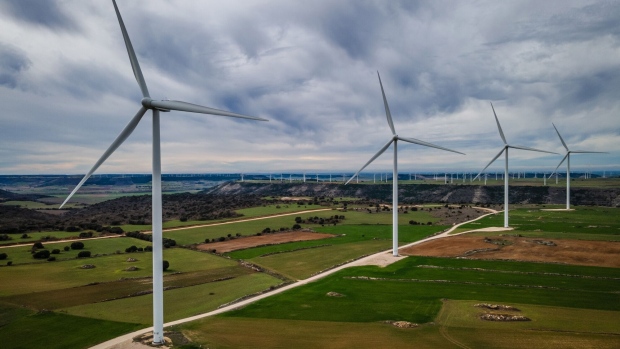Apr 18, 2024
A $9.5 Trillion ESG Investor Group Wants Private Market Reforms
, Bloomberg News

(Bloomberg) -- Global ESG investors with $9.5 trillion under management say it’s time to demand more accountability from private markets, amid evidence they’re increasingly absorbing fossil-fuel assets.
The Net Zero Asset Owner Alliance, whose 89 members include CalPERS, Zurich Insurance and Munich Re, is expanding its protocol to include all private asset classes. It previously excluded debt funds, directly held real estate debt funds and residential mortgage loans. The update, part of an ongoing expansion of asset classes targeted by NZAOA, means investors agree to a series of measures that add pressure on private markets to cut portfolio emissions.
The current lack of transparency around private holdings raises competition issues and imperils crossborder efforts to limit global warming to the critical threshold of 1.5C, said Günther Thallinger, chair of NZAOA and a member of the board of management at Allianz SE, the parent of Pacific Investment Management Co.
“I’m really very concerned,” he said in an interview. “This is why we advocate so much that there should be reporting requirements and also regulatory requirements.”
The value of private credit deals in the oil and gas industry has grown exponentially, rising to $9 billion in the 24 months through the end of 2023, up from $450 million arranged in the preceding two years, according to data compiled by analytics company Preqin. That’s as many banks retreat from the sector in response to regulatory and investor demands.
The build-up of high-carbon assets inside private markets is “worrisome for us because at the end, we are investors and we need to show investment performance overall,” Thallinger said.
And the more fossil-fuel assets end up in private hands, the harder it gets to pressure the sector to reduce its emissions, according to NZAOA. Engagement efforts suffer “significantly,” Thallinger said.
Under the new protocol, alliance members are required to target cuts of 40% to 60% in emissions by 2030 compared with 2019 levels, with no use of carbon credits till the next decade. Current requirements, which cover the five-year period to 2025, mandated cuts of 22% to 32%.
Global adoption of reporting standards set by the International Sustainability Standards Board, under the auspices of the IFRS Foundation, would contribute to a more level playing field, Thallinger said. While the European Union’s Corporate Sustainability Reporting Directive provides a good model, its geographic scope is limited, Thallinger added.
CSRD requires an estimated 50,000 companies — both listed and unlisted — to report sustainability metrics, including emissions. The directive is still being phased in, with the largest companies due to publish the first reports in 2025.
CSRD represents a “very good standard,” Thallinger said.
“We want to have sustainability information, we want to have this audited, so that we can really do our investment decision-making in the classical sense,” he said. “We also would like to see analysts covering the full spectrum, but they also need to have an information flow that they can base their work on, and today this isn’t the case.”
NZAOA is a part of the Glasgow Financial Alliance for Net Zero. GFANZ is co-chaired by Mark Carney, who is the chair of Bloomberg Inc.’s board and a former Bank of England governor, and Michael R. Bloomberg, the founder of Bloomberg News parent Bloomberg LP.
(Updates to add emission-cutting requirements in eighth paragraph.)
©2024 Bloomberg L.P.






